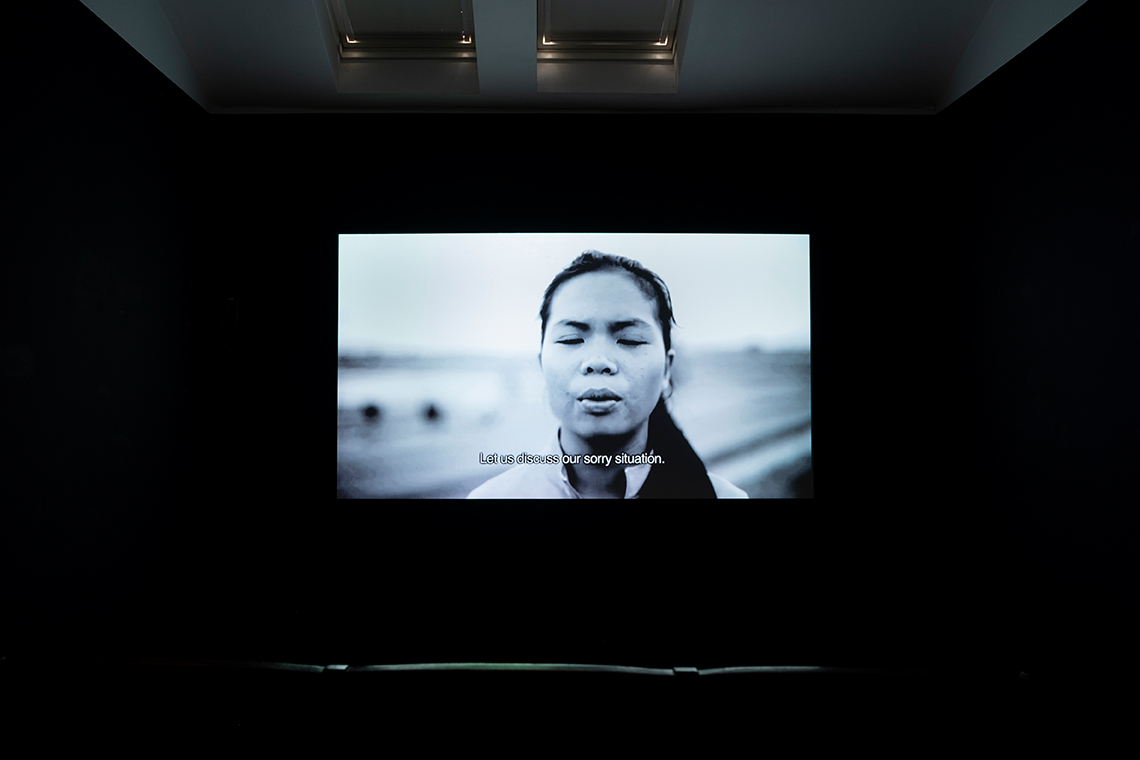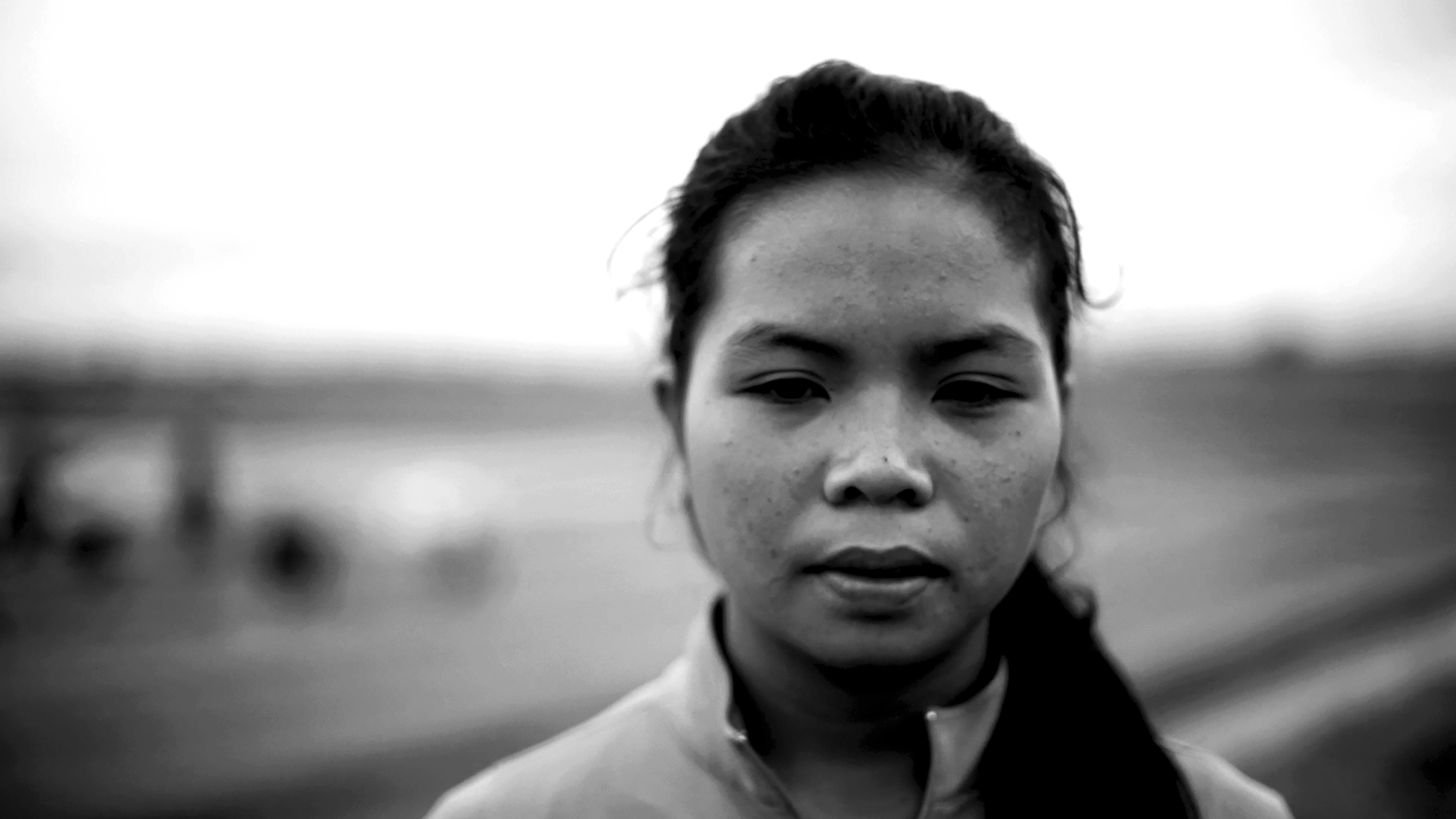Kiri Dalena, artist, filmmaker and activist, is fighting for human rights in the midst of State persecution in the Philippines. On this basis, her art practice underscores the relevance of protest and civil disobedience in today's society. In her first solo show in Germany her two related videos titled, Gikan Sa Ngitngit Nga Kinailadman (From the Dark Depths), are shown together for the first time. They address the suffering and resistance of the Filipino farmers.
In her videos Kiri Dalena (*1975, Manila, PHL) combines documentaries and critical commentaries on the historical and current situation of her homeland with fictional, often poetic elements.
Her videos are frequently produced in cooperation with so-called grassroots movements, which, in a literal sense, reflect social issues from their root causes. These politically and socially committed initiatives emerge from the middle of the population and look at social grievances from an inside perspective.
For example, she collaborated with the Rural Missionaries of the Philippines-Northern Mindanao Region on the 60-minute documentary Gikan Sa Ngitngit Nga Kinailadman (2014). The declared goal of this organization is to secure fundamental rights for the poorest rural population and to include them in policy decisions.
A minimalist black and white, 2-minute video taken from this documentary negotiates the plight of the Philippine peasants in the form of a lamentation.
The background of this work are cases of little-known human rights violations against both indigenous peoples and peasants in the Northern Region of Mindanao Island. The documentary gathers narratives from survivors and witnesses of attacks ranging from displacement, enforced disappearances to extrajudicial killings related to the entry of commercial plantations that have encroached on ancestral domains, mining companies that have deployed the use of paramilitary groups to quell resistance from the inhabitants, or simply because of the effort of the people to organize themselves and assert for just wages and humane working conditions.
The video describes their suffering in a poignant song sung by Melfe Ebalang from Valencia, Bukidnon. It ends in a lyrical call to fight - or to put it in the words of Gikan Sa Ngitngit Nga Kinailadman:
"It is our duty to defend our rights,
For in abject poverty we are still wallowing."
The second work is a 27-minute video of the same title told in a fictional frame narrative where a woman wordlessly mourns the death of an activist. Kiri Dalena interweaves dream-like, symbolically charged underwater scenes accompanied by spherical sounds with authentic 16mm, analog and digital video footage from the artist’s own documentation of political unrest spanning for two decades. Hence, a story about memory and forgetting on the one hand, and resistance, comradeship and the struggle of survival on the other hand emerges. Analogous to human memory, the border between actual events and fictional narratives blurs.
In cooperation with the exground filmfest 31 and on the occasion of this year’s country focus, the Nassauischer Kunstverein Wiesbaden is showing three solo exhibitions of Filipino artists, journalists and activists. Martha Atienza, Kiri Dalena and Raffy Lerma reflect in videos and photographs the political and social situation of their homeland.
After studying human ecology at the University of the Philippines at Los Baños, Kiri Dalena (* 1975, Manila, PHL) studied documentary film at Mowelfund Film Insitute in Quezon City. Her work has been featured in a variety of international exhibitions and film festivals, including the Manila Biennial (2018), SUNSHOWER: Contemporary Art from Southeast Asia, 1980s to Now at the Mori Art Museum in Tokyo (2017), at JIWA: Jakarta Biennial (2017), as well as the Busan Biennial (2016) and the Visions Du Reel Film Festival in Nyon, Switzerland (2014). Dalena's work is featured in the collections of the Lopez Museum and Library in Manila, the Singapore Art Museum, the M+ Museum Hong Kong and the Queensland Art Gallery. The artist lives and works in Manila and Mindanao (PHL).






